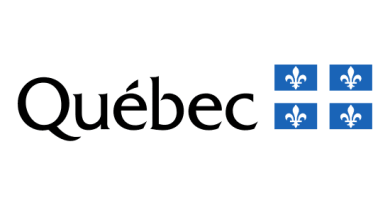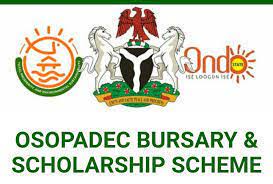Wellcome Early-Career Awards 2023 for researchers from low, middle-income countries, UK
Application deadline: 21 February 2023
This scheme provides funding for early-career researchers from any discipline who are ready to develop their research identity. Through innovative projects, they will deliver shifts in understanding that could improve human life, health and wellbeing. By the end of the award, they will be ready to lead their own independent research programme.
Scheme at a glance
Where your host organisation is based:
UK, Republic of Ireland, Low- or middle-income countries (apart from India and mainland China)Level of funding:
Your salary and up to £400,000 for research expenses. If eligible, you may also request additional funding for overseas allowances and overheads. Duration of funding:
Usually 5 years, but may be less for some disciplines, and may only be longer if held on a part-time basis.

Eligibility and suitability
Who can apply, who can’t apply, what’s expected of your host organisation
You can apply to this scheme if you are an early-career researcher and you are ready to design, plan and deliver your own innovative research project that aims to:
- advance understanding in your field
and/or
- develop methodologies, conceptual frameworks, tools or techniques that could benefit health-related research.
During the award, we expect you to:
- expand your technical skills and/or your experience of different research methodologies or frameworks
- build a collaborative network with other researchers in your field
- develop your people management skills
- advance your understanding of how to complete research responsibly and promote a positive and inclusive culture.
Your research can be in any discipline – including science, technology, engineering and mathematics (STEM), experimental medicine, humanities and social science, clinical/allied health sciences, and public health – as long as it has the potential to improve human life, health and wellbeing, and aligns with our funding remit.
Career stage and experience
At the point you submit your application, you must have completed a substantive period of research training relevant to your discipline.
You must have:
- completed a PhD (for example, in the life sciences) or an equivalent higher research degree. At the point of application you must have passed your viva examination. Or if you have not started a PhD or equivalent degree, at least four years’ equivalent research experience (for example, in the humanities and social sciences).
Assessment criteria
We will review your research proposal, skills and experience, and research environment.
YOUR RESEARCH PROPOSAL
To be competitive, your research proposal will be:
- Bold. It aims to deliver a significant shift in understanding and/or it provides a significant advance over existing methodologies, conceptual frameworks, tools or techniques. It has the potential to stimulate new and innovative research.
- Creative. Your proposed approach is novel – it develops and tests new concepts, methods or technologies, or combines existing ideas and approaches in a new way.
- High quality. It is well-designed, clear, supported by evidence and the proposed outcomes/outputs are feasible.
YOUR SKILLS AND EXPERIENCE
We will review:
- Your previous research outputs and contributions to the research community.
- Your research skills and experience of different methodologies, and how you plan to develop these during the award.
- How you will develop your management skills and capabilities for leading a research programme.
YOUR RESEARCH ENVIRONMENT
We will review:
- How your research environment(s) will support you to deliver your research programme and develop as a researcher.
- How your host organisation will help you develop your project and management skills.
- How you will contribute to a positive and inclusive research culture.
How to apply
- Before you applyMake sure you read everything on this page.You may also want to watch a recording of a webinar that took place on Monday 12 April 2021.Get some tips to help you write your grant application.You do not need to contact us before you write and submit your application.
- Submit your application to your host organisation for approvalComplete your application form on Grant Tracker.View the sample full application form for Wellcome Early-Career Awards [PDF 1.9MB].Submit it to the ‘authorised organisational approver’ at your host organisation for approval. Make sure you leave enough time for the approver to review and submit your application before the deadline. The approver may ask you to make changes to your application.Get some guidance on using Grant Tracker.
- Host organisation reviews your application and submits it to usYour application must be submitted by 17:00 (GMT/BST) on the deadline day.
- ShortlistingWe will check your eligibility for the scheme and that your application demonstrates how you will meet the aims of the scheme. If your application is ineligible or does not demonstrate how you will meet the aims of the scheme, we will withdraw your application and contact you to explain why.One of the following Early-Career Advisory Groups will review your application, depending on your area of research:If shortlisted, we will invite you for interview.
- Written expert reviewWe’ll seek external written expert review on shortlisted applications. Only the proposed research will be reviewed.Reviewers will be chosen based on their expertise within the relevant research field and not on their level of seniority.Unattributed comments will be sent to you before your interview.
- InterviewsThe Early-Career Interview Committee will interview shortlisted candidates at the Wellcome offices in London. Accessibility requirements will be accommodated. Those who cannot attend in person can participate remotely.We will provide information on the structure of the interview, layout of the room, and interview committee membership.Shortly before the day of the interview, you will need to provide us with your presentation slides. You will be asked to give a presentation at the start of your interview.The focus of the interview will be on questions and answers. The committee will assess across a set of criteria rather than one specific aspect of the proposal.
- Funding decisionFinal funding decisions will be made by the Discovery Research Decision Board.You will receive an email notification of the funding decision soon after the decision has been made.
- FeedbackWritten feedback will be provided to all unsuccessful applicants at each decision point, including the reasons for a decision.
Disabled applicants
If you are disabled or have a long-term health condition, we can support you with the application process.
Source / More information: Official Website HERE.




